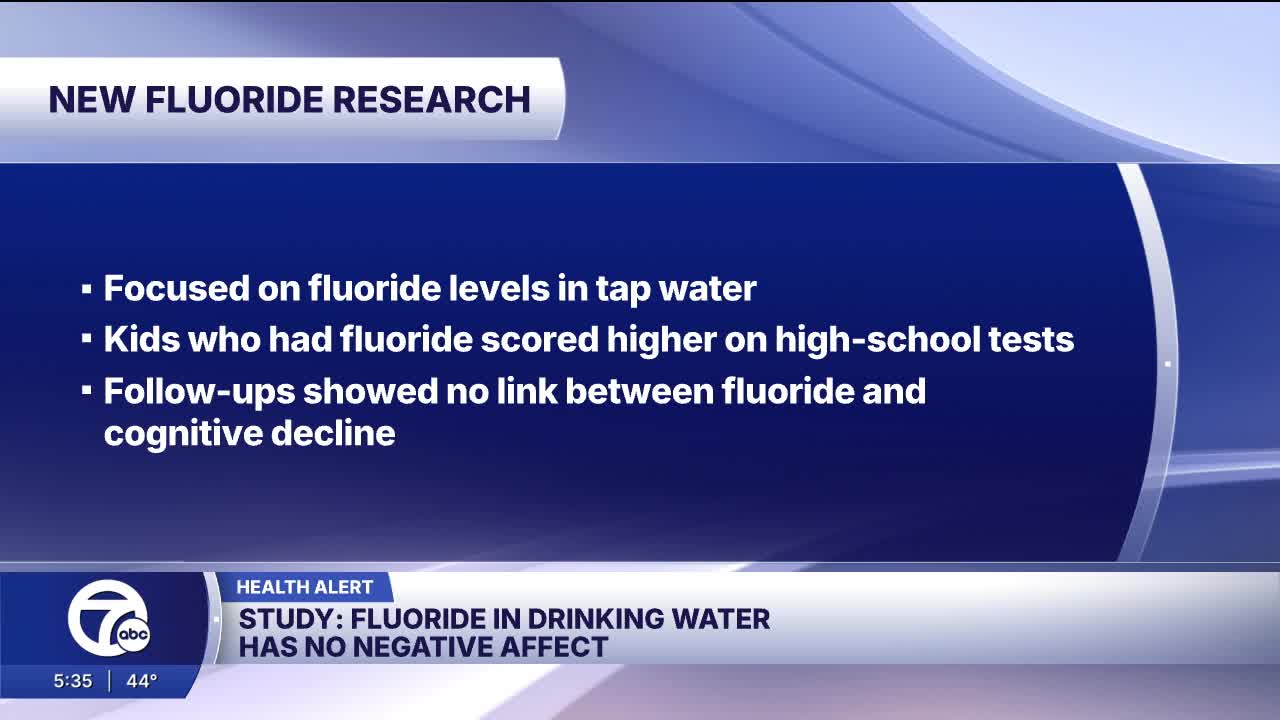(WXYZ) — In today’s Health Alert, there’s new research about fluoride in drinking water. A recent government report raised concerns about possible risks. But this new study points in a different direction, suggesting it may benefit kids’ learning.
There was some worry after the National Toxicology Program study suggested that high fluoride exposure could be linked to lower IQ in children. But that study looked at total fluoride from all sources, not just drinking water. It only saw a possible link at levels above 1.5 milligrams per liter — more than twice the recommended 0.7 milligrams per liter in tap water.
Now, this new research focused on the fluoride levels most of us actually get in tap water — the typical, recommended amounts. The study was based on a program that started in the US Department of Education. It followed nearly 27,000 people over four decades — from their teens into adulthood. The researchers matched each person’s high-school test scores in math, reading, and vocabulary to the fluoride levels in their community’s drinking water.
And here’s what they found: kids who had fluoride in their water for part of their childhood scored higher than kids who never had any. And kids who had fluoride in their water throughout their entire childhood scored the highest.
On top of that, when this group reached their 60s, follow-ups showed no link between fluoride and cognitive decline.
IQ tests are designed to measure overall intellectual ability. Cognitive tests — like math or reading exams — measure how well someone is thinking and how much they’ve learned. So they’re connected, but not the same.
However, this research shows that fluoride can make a difference. One possible reason is dental health. Pain from tooth decay can make it tough for kids to focus, and severe cavities can mean missed school days. That pain and lost learning can add up.
Now, the CDC still recommends 0.7 milligrams per liter as the optimal amount. And the American Dental Association strongly supports water fluoridation - it’s been used safely since the 1940s.
So for families, tap water remains one of the easiest and most cost-effective ways to protect children’s teeth. And this new study adds to the evidence that recommended fluoride levels do not appear to harm cognitive development.

This Week on the Dr. Nandi Show
Esophageal cancer is a lethal disease, with most patients not surviving beyond the first year of diagnosis. Dr. Partha Nandi, MD, discusses how it develops and ways to prevent it. A guest shares his powerful story of battling this cancer and undergoing a transhiatal esophagectomy, where part of his esophagus was removed and his stomach reattached. Also, Jennifer Nagy from the American Cancer Society joins to discuss who’s most at risk and why early detection is critical. Tune in this Sunday, November 23rd at 5 pm.




